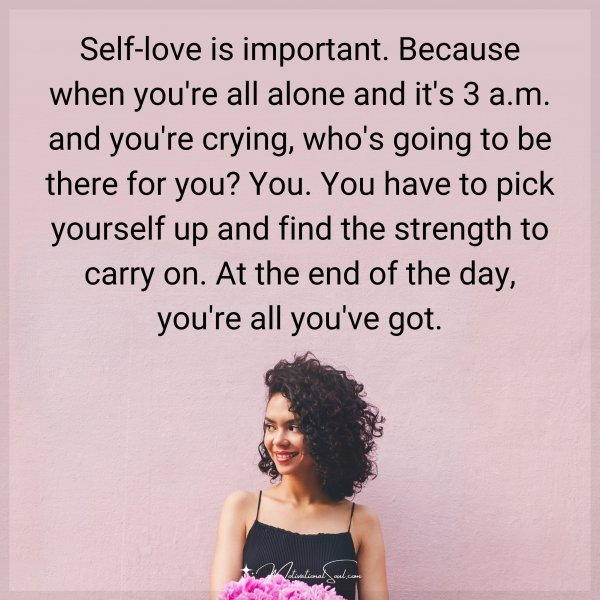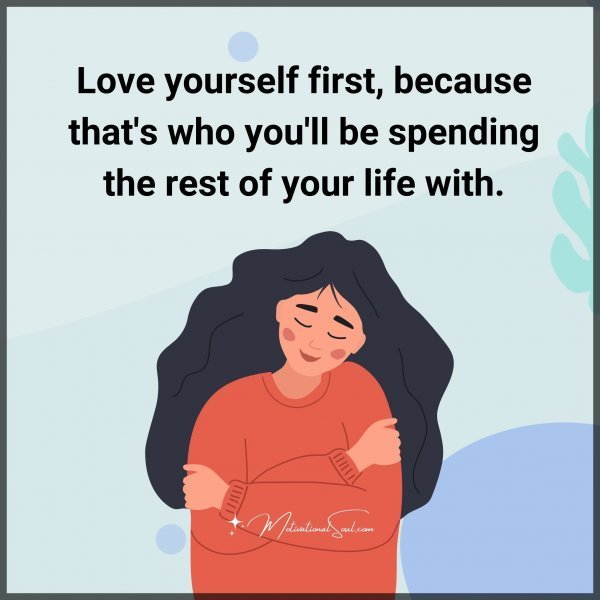Self-Love Tips: How to Love Yourself Unconditionally

Do you ever feel like you hate yourself? Like all you do is make mistakes and disappoint yourself? If so, you’re not alone. Many people struggle with self-hatred daily. But there are ways to combat those negative thoughts and start loving yourself again. In this blog post, we will discuss 8 ways to start accepting and loving yourself just the way you are!
Self-hatred Indicators
Focus on the negative
One of the most common indicators of self-hatred is an excessive focus on negative traits and behaviors. Individuals who hate themselves are quick to believe that they are unworthy and incapable of change. As a result, they tend to dwell on their faults and shortcomings, magnifying them out of proportion. This can lead to a negative feedback loop, in which people become trapped in a cycle of self-loathing.
Inability to accept compliments
Another common indicator of self-hatred is an inability to accept compliments or praise. People who hate themselves often view compliments as unwarranted and undeserved. They may also believe that others are simply being nice or trying to make them feel better. As a result, they have difficulty hearing and internalizing positive feedback.
Trying to fit in
Trying to fit in is often an indicator of self-hatred. People who hate themselves try to become someone they’re not to gain acceptance from others. They may try to change their appearance, personality, or interests to fit in with a particular group or person. This can lead to a sense of emptiness and loneliness, as the person is not being true to themselves. Trying to fit in can also be a sign of low self-esteem. People who dislike themselves may believe that they are not good enough and that they will never be accepted unless they change who they are. This can lead to a cycle of attempts to change, followed by feelings of failure and inadequacy.
Personalizing criticism
One of the most common indicators of self-hatred is personalizing criticism. This is when someone takes any form of criticism as a reflection of their entire worth as a person. For example, if a co-worker criticizes a project you completed, instead of taking it as constructive feedback, you might interpret it as a sign that you are not good enough or smart enough. Personalizing criticism can lead to a negative self-image and can prevent you from learning and growing from your mistakes.
Expecting Perfection
Expecting perfectionism from yourself is one of the most common indicators of self-hatred. You strive for unattainably high standards, beating yourself up whenever you make a mistake. IYou are never satisfied with your performance.This perfectionism can manifest in different ways, such as obsessively trying to control your weight or never feeling satisfied with your appearance. You may also find yourself constantly comparing yourself to others and feeling like you always come up short.
Being too harsh on yourself
If you’re too harsh on yourself, it may be a sign of self-hatred. We all make mistakes and have flaws, but if you can’t forgive yourself for them, it may indicate a deeper issue. If you find yourself constantly putting yourself down, making negative comparisons to others, or engaging in self-sabotage, it’s worth exploring why you have such low self-esteem. Treating yourself with compassion and understanding is an important step in overcoming self-hatred. Try to be gentle with yourself, and remember that everyone makes mistakes. If you work at it, eventually you will develop self-love and acceptance.
Pessimistic outlook
Self-hatred is often characterized by a pessimistic outlook. People who hate themselves tend to see the world and their place in it through a dark lens. They may believe that they are unworthy or undeserving of good things and that they will always be failures. As a result, they may adopt a self-defeating attitude, always expecting the worst and never believing that they can succeed. This can lead to a spiral of negative thinking, as self-hatred breeds further negativity and discouragement.

What Causes Self-Hatred?
Have you been noticing any negative aspects about yourself lately? If that’s the case, you might be wondering why you despise yourself and how to change. Reflect on the following questions and take some time to come up with answers. The list below includes some of the most common reasons.
Inferior Inner Critic
One of the primary causes of self-hatred is an inferior inner critic. This is the voice in your head that tells you that you’re not good enough, that you’ll never amount to anything, and that you should just give up. This voice can be incredibly loud and persuasive, making it hard to silence. If you’ve been struggling to love yourself, it’s important to identify your inner critic and start working on silencing it.
Some common phrases your inner critic says are:
“You’re not good enough.”
“You’re not smart enough.”
“You’ll never be successful.”
“Nobody will ever love you.”
“You’re ugly/fat/stupid.”
These are just some examples, but your inner critic may say other things. Once you identify the voice, you can start to counter it with positive self-talk. For example, instead of listening to your inner critic who tells you “You’re not good enough,”It’s a lot easier to say, “I’m great,” or, simply, “I’m amazing.”
Past Trauma
Past trauma can lead to a feeling of self-hatred. When we experience something traumatic, our sense of safety and trust is shattered. We may feel like we are not worthy of love or that we are flawed in some way. This can lead to a deep, abiding hatred of ourselves. Past trauma can also cause us to doubt our worthiness and question our place in the world. We may feel like we don’t deserve happiness or that we are undeserving of love. This can lead to a feeling of self-hatred.
Lastly, past trauma can cause us to view ourselves through a lens of shame. We may feel like we are not good enough or that we are unworthy of love. This can lead to a deep feeling of self-hatred. If you’ve experienced any of these things, it’s important to seek out help from a therapist or counselor who can help you work through your past trauma and learn to love yourself again.
Unrealistic Standards
Unrealistic standards are often the root cause of self-hatred. When we compare ourselves to others, we often focus on our own shortcomings and fail to see our own strengths. We may hold ourselves to unrealistic standards in terms of our looks, our achievements, or our personal relationships. When you feel like you’re not good enough, it can cause feelings of inadequacy and low self-worth. Unrealistic standards can also be the result of comparing ourselves to an idealized version of ourselves. We may have an image in our heads of who we want to be, and when we don’t live up to that image, we may feel like a failure.
Childhood Experiences
Childhood experiences are often cited as a major cause of self-hatred. If a child grows up in an environment where they are constantly criticized or made to feel worthless, it’s not surprising that they would develop negative feelings about themselves. Unfortunately, these early experiences can have a lasting impact and can lead to a lifetime of self-doubt and insecurity. In addition, people who suffer from low self-esteem often tend to be their own worst critics. They are quick to point out their own flaws and mistakes, and they seldom give themselves credit for their accomplishments. Over time, this can lead to self-hatred.
Poor Relationships
Poor relationships are often at the root of self-hatred. If we feel constantly misunderstood or mistreated by those closest to us, it can lead to feelings of worthlessness and inadequacy. In some cases, self-hatred may be the result of abuse, either emotional or physical. Abuse can shatter our sense of self and make it difficult to see ourselves as anything other than damaged goods.
Bullying
Bullying is a major cause of self-hatred. When someone is repeatedly ridiculed, mocked, or otherwise made to feel inferior, it can take a toll on their self-esteem. In some cases, the impact of bullying can be so severe that it leads to depression, anxiety, and other mental health issues. Additionally, people who are Bullied may start to believe that they are worthless and unlovable. As a result, they may start to hate themselves.
Mental Health Conditions
Mental health conditions are often accompanied by feelings of self-hatred. This can be due to a number of factors, including negative thought patterns, low self-esteem, and physical appearance. Mental health conditions can cause people to see themselves in a negative light and dwell on their flaws. This can lead to a feeling of worthlessness and despair. Low self-esteem can also cause self-hatred.
People with low self-esteem often compare themselves to others and feel that they fall short. They may believe that they are not good enough, smart enough, or attractive enough. Physical appearance can also play a role in self-hatred. People who are unhappy with their weight, skin, or hair often feel disgusted with themselves. They may feel that they will never be good enough or that they are unworthy of love and respect.
The Consequences of Self-Hatred
- You may give up your efforts because you believe they will only result in failure.
- Indulging in harmful coping mechanisms like drugs, binge eating, or social withdrawal.
- You may harm your efforts or neglect yourself.
- You might unknowingly choose people who are harmful or exploitative, like toxic friends or partners.
- Suffering from low self-confidence and self-esteem.
- Trouble making decisions due to indecision.
- Having a perfectionist attitude that nothing is ever good enough.
All of these behaviors can have harmful consequences in your life, both physically and mentally.
How to Love Yourself Again
How to Love Yourself Again It is not uncommon to lose yourself in the chaos of life. With work, family, and social obligations, it is easy to forget about your own needs and wants. As a result, you may begin to feel disconnected from yourself and spiral into a state of self-doubt and low self-esteem. If you find yourself in this situation, it is important to remember that it is never too late to love yourself again. Below are some tips on how to reconnect with your inner self and rediscover the things that make you happy:
Take some time for yourself
In today’s fast-paced society, it might be tough to find time for yourself. However, it is important to carve out some time each day to do things that make you happy. Whether it is reading your favourite book, going for a walk in nature, or taking a yoga class, taking some time for yourself will help you relax and rejuvenate.
Connect with your passions
One of the best ways to love yourself again is to connect with your passions. Whether it is painting, hiking, cooking, or gardening, doing things that make you feel alive will help you rediscover your sense of self.
Be kind to yourself
It is easy to be hard on ourselves when we make mistakes or fall short of our goals. However, it is important to remember that we are human and imperfections are part of what makes us unique and
special. Instead of beating yourself up over your flaws, learn to accept them and focus on your positive attributes.
Spend time with loved ones
Spending time with those who love and support you can help remind you of your worth. Whether it is family members, close friends, or even pets, surround yourself with people who make you feel good about yourself.
Do something new
Trying something new can help you expand your horizons and see life from a different perspective. Stepping outside of your comfort zone can be scary but it can also be exhilarating and empowering. So go ahead and sign up for that pottery class or take a trip to an unfamiliar place-you may just surprise you!
Conclusion
Learning to love yourself again is a process that takes time and effort. However, it is worth it to invest in your happiness and well-being. By taking care of yourself emotionally and physically, you will be better equipped to handle the ups and downs of life. So take some time for yourself, connect with your passions, be kind to yourself, spend time with loved ones, and do something new. Before you know it, you will be on your way to a happy and fulfilling life.




Recent Comments